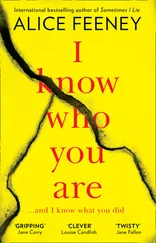Jenny said Andropov would write to me. Every day for weeks, I checked the mail as soon as I got home from school. Pip always ripped the mail out of the slot with his teeth the minute the postman shoved it through, so the edges of our letters and magazines were often torn. I wondered if a letter from Andropov had arrived only to be eaten by the dog, but that was wishful thinking. Pip was not in the habit of consuming paper. While I waited for a letter, Jenny flew to New York to appear on Nightline and then to Los Angeles to be on The Tonight Show. My mother let me stay up late to watch her chat with Johnny Carson. “God, the camera loves her,” my mom said. She rang the opening bell of the New York Stock Exchange; she made a guest appearance on Sesame Street (Oscar the Grouch to Jenny: “What are you so happy about?”). She was on the cover of so many magazines that I lost count. My mother saved them all. She missed a lot of school, but Mrs. Gibson didn’t care. “This is the most exciting thing that has ever happened to one of my pupils,” she told the Washington Post. “I’m so proud of Jennifer. She’s such a thoughtful girl.”
And in the midst of all the television appearances and ribbon-cutting ceremonies, the Joneses, with the help of the Russian embassy in Washington and the American embassy in Moscow, were planning their trip to the USSR that summer. They would go for two weeks in July. They had an official invitation from Yuri Andropov, and their itinerary would be carefully controlled by the Kremlin: six days in Moscow, six days in Leningrad, and three days at Artek, the Pioneer camp on the Crimea. Meanwhile my mother was busy prepping for the International Day of Disarmament on June 20. There were protests scheduled at fifty sites around the world.
I helped Jenny pack before her big trip. “I wish you could come,” she said. I wished I could go, too. I figured I’d earned it, since the letters were my idea. But I didn’t tell her that. It wasn’t her fault that her letter was picked. It wasn’t her fault that she was photogenic and charismatic and named Jennifer Jones. I didn’t want her to feel guilty. My mother and I went to Dulles Airport with the Joneses to send them off. I gave Jenny three granola bars for the flight.
“I’ve never been to another country before,” she said to the flock of reporters. She held up her newly minted passport. I was right there beside her, but I was cropped out of all the published photos.
We watched their plane take off. My mother stood next to me, breathing deeply in an attempt to ward off a panic attack—the mere sight of planes was enough to make her nervous. If we had been invited to visit the USSR, I would have had to explain that my mother didn’t fly.
For the next two weeks, my mother and I watched the coverage of Jenny’s trip on the news. Orchestrated footage of her being greeted at Sheremetyevo Airport by the Soviet Friendship Committee—they gave her so many bouquets of flowers that she could hardly walk—of Jenny posing outside Lenin’s Mausoleum in Red Square, singing folk songs with other girls at Artek, and strolling through the cavernous galleries of the Hermitage in Leningrad.
While she was away, I had agreed to feed Jenny’s cat. Every afternoon I let myself into their house to fulfill my duty. I stacked their mail—mostly letters addressed to Jenny from her adoring fans—on the sideboard in the dining room. Hexa’s bowls were in the kitchen, and while I served her Meow Mix and refilled her water dish, she studied me from her perch on the windowsill. Hexa was a fat gray cat with amber eyes so penetrating they freaked me out. Her default expression was a scowl, and she had the annoying habit of using the bathtub as her litter box. I was never much of a cat person, but I made an effort. I tried to stroke her under the chin the way Jenny did, but the cat just switched her tail and stared me down.
After I watered the plants, I often climbed the stairs to the second floor. I told myself I wasn’t snooping—even as a child I had a profound respect for privacy—when I wandered into the master bedroom. I just wanted to examine the evidence of fatherhood: the cuff links in a silver box on the dresser; the wooden shoe trees on the floor of the closet, awaiting their next assignment; the Speed Stick deodorant next to the toenail clippers in the medicine cabinet. I am embarrassed to admit that I even pressed my nose into Mr. Jones’s ties, hoping to inhale some paternal comfort. He had dozens of ties, hung in neat silk stripes from a rack, and his shirts were arranged by color: Oxford blue, white, a few pale pinks. His loafers had dimes in them, not pennies. Everyone wears a uniform, I thought.
In Jenny’s room I’d put on one of her LPs and let the needle find the deepest groove, to see which songs she listened to most. Above her desk was a bulletin board on which she stuck various mementos and talismans: a picture of her old yellow house in Dayton, a ribbon from a swim meet, a black-and-white photo strip of the two of us. In the months since the Andropov letter, newspaper clippings had crowded out the photos I knew so well. One day I lifted up one of the articles (“Jennifer Jones is just a normal American girl”) to see if our photo strip was still there, and I must have bumped the board, because it slid off its hooks and fell onto the desk. I checked to be sure the articles were still securely tacked, and then when I lifted the board to rehang it, I felt a wad of paper taped to the back. I turned the board over, and there it was, lodged in the lower left corner: the envelope addressed to Mr. Yuri Andropov in my handwriting. Inside was the letter I’d written in Jenny’s room the previous November, the letter Mr. Jones had promised to post. There was no stamp in the upper right corner. It had obviously never left the Joneses’ house.
“I’m sure Andropov will write to you,” Jenny had said to me again and again, but she must have known that wasn’t true. Did her father forget to mail my letter? Or had Jenny encouraged him to send hers alone? She was an only child and sometimes had to be prodded to share. We’d had petty squabbles over Smurfs and Barbie dolls. I once stomped out of her house when I believed she was cheating at Sorry. But I’d never doubted her loyalty. I’ve read that guilt can be detected by physical changes. You know someone’s lying because the person sweats or blinks or can’t make eye contact. Polygraph tests measure physiological changes—in your breathing, your blood pressure, the beating of your heart. But I’d never noticed anything unusual in Jenny, at least not before her trip.
I put the letter in my pocket, and then I sat on the floor of Jenny’s room and cried. I couldn’t understand why she had lied to me. It didn’t make any sense. When we wrote the letters, we didn’t expect a response from Andropov or the press. We never talked about the possibility of fame. It had never occurred to me. And it wasn’t Jenny’s celebrity I resented so much as the randomness of her cruelty. Such arbitrary meanness was common at school, where the alpha girls would turn on people suddenly and without reason. A person could be welcome at their lunch table one day and exiled to the other side of the cafeteria the next.
The ringleader of the group was Kim, a blunt, blond girl whose popularity had been established in kindergarten and who retained her tyrannical grip on the class. She liked to check the labels on everyone’s sweaters. If you weren’t wearing Benetton, she made sure you were shunned. I didn’t own any Benetton sweaters. She once concocted a scheme in which all the girls talked about an upcoming bowling party at Kim’s country club. I was the only one who was not invited. Even Jenny was going. In the end I learned it wasn’t a real party at all: Kim just wanted to hurt my feelings. The fact that it was a phantom soiree did not alleviate the ache brought on by exclusion. Long after she moved on to her next victim, I still felt inadequate. Kim was already buxom at eleven, and my mother assured me that she would peak in eighth grade. My mother’s words about Kim offered no consolation at the time, but at least I still had Jenny as a buffer.
Читать дальше












